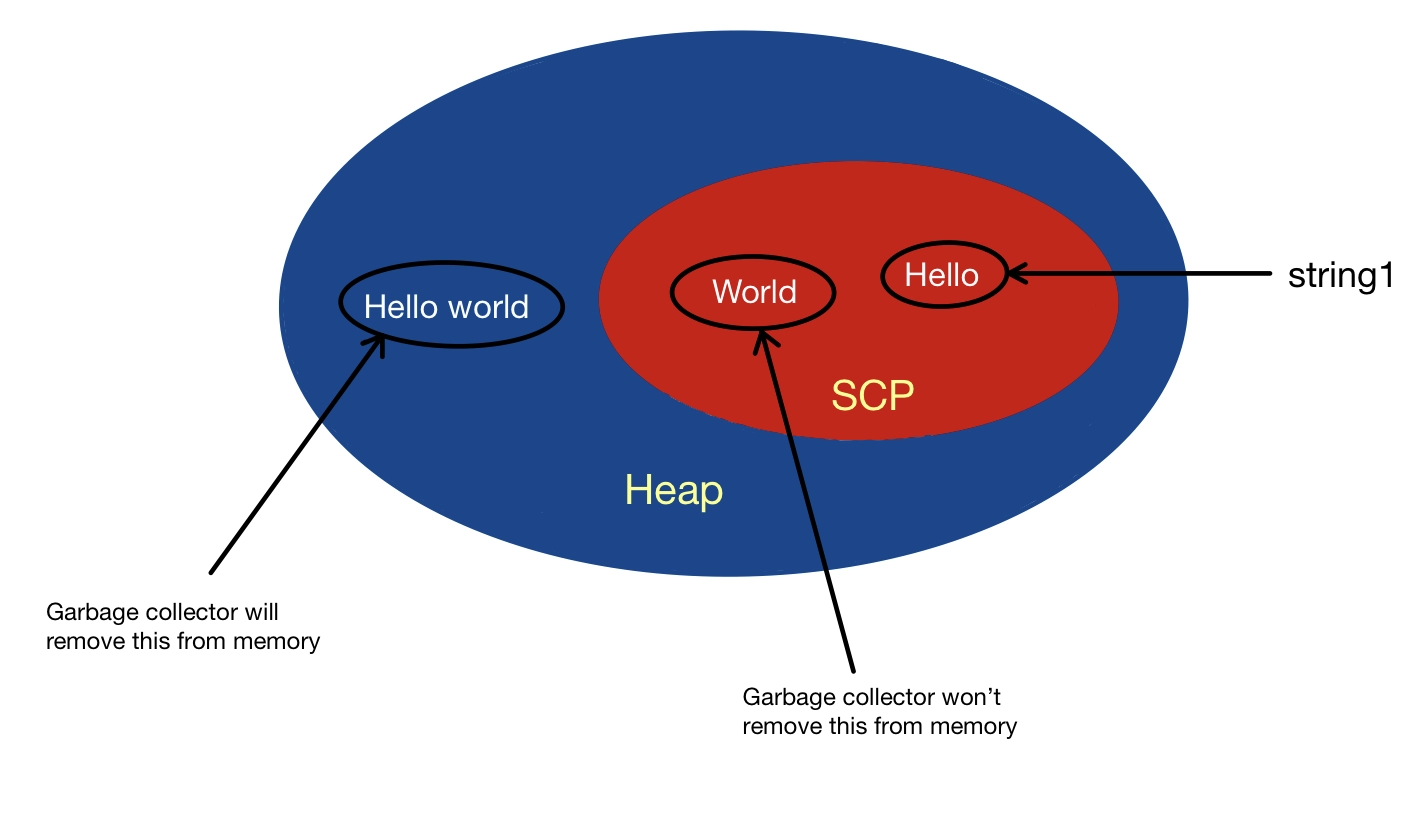What Is Immutable Strings and How It Works
In the realm of shows, understanding the concept of immutable strings is extremely important for producing secure and durable applications. Unalterable strings describe strings that can not be modified after they are created, making sure data integrity and predictability within the code. This basic principle plays a vital role in various programs languages and provides a distinct method to taking care of information. By discovering the details of just how unalterable strings operate, one can reveal a world of benefits and possibilities that can boost the quality and efficiency of software growth.
The Essentials of Unalterable Strings
Immutable strings, as an essential concept in programming, are personality series that can not be transformed when they are created. This implies that as soon as a string is assigned a worth, that value can not be changed. In languages like Python and Java, strings are immutable objects, leading to different effects in regards to memory management and data stability.
Among the crucial advantages of unalterable strings is that they give a feeling of security in information control. Considering that the material of an immutable string can not be modified, it makes sure that the initial data stays intact, minimizing the danger of unplanned adjustments during program implementation (Why are strings immutable in Java?). This residential property likewise streamlines debugging procedures, as programmers can trust that when a string is defined, its worth will certainly not be unintentionally changed
When a new string is produced based on an existing one, instead than changing the initial string, the brand-new value is kept separately. In general, understanding the basics of immutable strings is important for understanding programming ideas and optimizing code efficiency.
Benefits of Unalterable Strings
Structure upon the protection and efficiency advantages of unalterable strings, their benefits encompass enhancing code reliability and simplifying concurrent programming jobs. By being immutable, strings can not be customized after creation, which eliminates the threat of unintentional changes in the information they keep. This inherent immutability guarantees that when a string is produced, its value remains consistent throughout the program's execution, reducing the possibilities of bugs brought on by unanticipated changes.
In addition, unalterable strings contribute to code integrity by making it easier to reason concerning the state of a program. Since strings can not be transformed, designers can trust that a string will constantly hold the very same value, streamlining debugging and upkeep efforts. This predictability causes more stable and reputable codebases.

Execution in Shows Languages
Within numerous programs languages, the unification of unalterable strings is a fundamental element that impacts how data is handled and controlled within code structures. The execution of unalterable strings differs across different programming languages, with each language using its own systems to sustain this idea.

In contrast, languages like C you could try this out and C++ do not have built-in assistance for unalterable strings. Developers in these languages need to manually carry out immutability by enforcing policies within their code to avoid straight modifications to string items.
Ideal Practices for Collaborating With Unalterable Strings
When managing unalterable strings in programs languages like Java and Python, sticking to ideal practices makes certain effective and safe data adjustment. One of the essential finest techniques is to make use of StringBuilder or StringBuffer rather than straight manipulating strings, particularly when dealing with comprehensive concatenation operations. These courses offer mutable options for string adjustment, helping to avoid unnecessary memory allocations and enhancing efficiency.
Furthermore, when working with sensitive data such as passwords or API tricks, it is critical to stay clear of keeping them as ordinary message in immutable strings. Utilizing safe have a peek here and secure storage space devices like char selections or specialized collections for taking care of sensitive information aids minimize protection threats associated with unalterable strings.
Real-world Applications and Instances
Checking out functional applications of immutable strings in different industries discloses their considerable effect on information integrity and system reliability. In the healthcare market, immutable strings play an essential duty in making sure the protection and confidentiality of patient information. By preventing unauthorized modifications to sensitive information such as medical records and prescriptions, immutable strings aid keep conformity with rigorous privacy laws like HIPAA.
Banks additionally profit from the immutable nature of strings to boost the security of customer information and transaction documents. Unalterable strings help prevent fraudulence and unauthorized changes to financial details, offering a durable protection against cyber hazards and ensuring the count on and self-confidence of clients.

Verdict
Finally, immutable strings are repaired and stable series of personalities that use advantages such as string safety and improved performance in shows. They are carried out in numerous shows languages to make sure information honesty and safety. Best practices for working with immutable strings include preventing straight alterations and utilizing methods that return brand-new string items. Real-world applications of unalterable strings consist of information security, caching, and string adjustment jobs.
Unalterable strings refer to strings that can not be modified after they are created, guaranteeing data stability and predictability within the code. When a brand-new string is produced based on an existing one, rather than modifying the initial string, the brand-new worth is stored individually.In languages like Java and Python, strings are unalterable by default, meaning that as soon as a string things is produced, its value can not be altered - Why are strings immutable in Java?. Finest practices for working with immutable strings include preventing direct adjustments and utilizing approaches that return new string objects. Real-world applications of unalterable strings include data encryption, caching, and string control tasks
Comments on “Why Are Strings Immutable in Java? Exploring the Layout Choices”